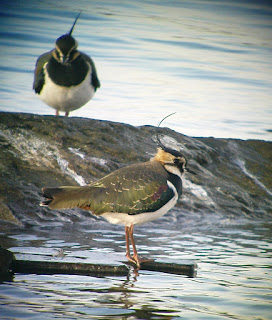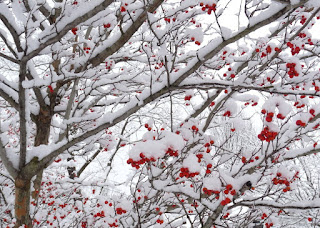Hello birdwatchers
With the cold weather finally upon us, it is now time to start thinking seriously about our feathered friends out there in your garden, trying to keep warm during the long winter nights.
To stay alive in the winter, birds must spend most of their waking hours feeding to lay down valuable fat reserves. They need to ingest enough calories by day to replace the energy they lose, just trying to keep warm at night. The lower the temperature, the more calories they need.
Frozen ground and haw frosts make food inaccessible for wildlife. In addition, when water is frozen, birds can become dehydrated and find it difficult to effectively preen their feathers which, in turn, affects their ability to insulate their bodies from the cold.
If you are at home during the day, please try to keep some water available in your garden and ensure that there is some frost-free food. When there is thick ice in your bird bath or pond, you can just slowly pour a kettle of boiling water over the top of the ice. The water will cool quickly and stay unfrozen for a while.
As snow is on the way, keep checking your feeders to make sure that the seed hasn't got wet. If this happens then the seed will become unpalatable to birds and they won't use your feeders. Keep your feeders clean and filled with a variety of food and you may even attract some different species into your garden. Birds can travel great distances to search for food. Put food on the ground and you may provide a valuable feeding station for a desperate brambling, skylark, tree sparrow, yellowhammer or reed bunting, even if you live near the city centre.
See the British Trust for Ornithology site for more information about how birds keep warm in winter.
Preparing your garden now for the winter freeze may make this year's Big Garden Birdwatch a year to remember. I often hear people say that the hour they chose to watch birds was the quietest hour they'd had in the whole year. I wish you luck this year and do let me know if you see anything unusual.
The Start Birding programme of events has continued since my last post. The Tuesday and Wednesday evening classes have been learning more about wildfowl and last weekend's trips took us to Pennington Flash near Leigh in Lancashire and to Middleton Park in Leeds.
I'd not visited Pennington Flash for quite some time and I was very excited about going. Despite the weather being chilly and damp due to the water-logged ground, the weak sunlight provided some warmth and enhanced the colours of the birds and the winter vegetation. The iridescent pink and green plumage of a lapwing flock stood out well against the darkness of a shale spit. Small groups of gulls; common, black-headed, herring, lesser black-backed and greater black-backed were concentrated in one spot, sparking off a quick lesson on gull identification.
 |
| Iridescent pinks and greens on a lapwing flock |
 |
| lesser black-backed and black-headed gulls (photo: Rodney German) |
 |
| a small flock of snipe (photo: Rodney German) |
 |
| Kingfisher |
 |
| two stock doves feeling the cold |
 |
| Male bullfinch and greenfinches (photo: Rodney German) |
 |
| Willow tit |
 |
| Long-tailed tits (photo: Rodney German) |
 |
| Scarlet elfcup fungus (photo: Rodney German) |
 |
| Robin (photo: Rodney German) |
The sun shone on Sunday morning and the edge of Middleton Wood was alive with activity from great-spotted woodpeckers. Three females and one male chased each other around the treetops, calling so loudly that all the dog walkers remarked on the spectacle. Treecreeper, nuthatch, goldfinch and siskin fed quietly above our heads while blue tits, great tits, coal tits and long-tailed tits provided material for our lesson on bird song. Suddenly there was a commotion of alarm calls and a sparrowhawk was seen gliding low through the network of branches. A jay squawked loudly - a bit too late to be of assistance to the rest of the woodland - but we didn't see the sparrowhawk catch anything.
If you'd like to learn more about birds, or join me on one of my walks, call me on 07778 768719 or email linda.starbirding@gmail.com
Keep warm!

No comments:
Post a Comment